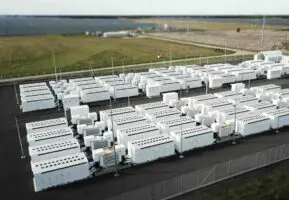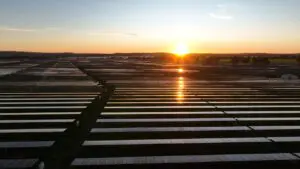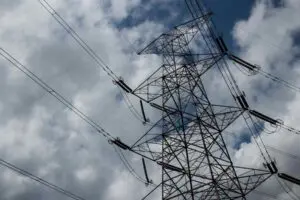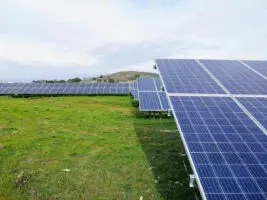More contractors have been stung by the costs of connection delays for renewable energy projects, with the listed developer Infigen Energy disclosing that it received more than $10 million of “compensated revenue” from delays at the Bodangora wind farm in NSW.
Details of the issue are scant, and Infigen has declined to comment further. It said in a brief statement accompanying its latest production and revenue figures that it had received $10.1 million of compensated revenue.
It said this was “primarily relating to liquidated damages for construction delays at Bodangora Wind Farm.”
The 113.2MW Bodangora facility started production a year ago, after work on the site began in June, 2017. The EPC contractors were named in Infigen press releases at the time as Civil and Allied Technical Construction Pty Ltd (CATCON) and General Electric International Inc. (GE) which manufactured and supplied the turbines.
The overhead powerlines connecting the wind farm to the electricity grid have been built by TransGrid.
Bodangora is just the latest in a long and growing line of wind and solar farms that have experienced delays in connection and commissioning, and which have resulted in “compensated revenue”, or “liquidated damages” and which in some cases has taken a heavy toll on contractors.
RCR Tomlinson collapsed under the weight of cost over-runs, damages claims and cash flow delays as the result of problems at nearly one dozen solar farms it was working on, while Downer Group, Bouyges, Tempo Australia and others have also been hit by damages claims or cost over-runs.
In Queensland, Adani Renewables’ Rugby Run solar farm was only connected more than six months after the solar farm’s machinery was in place, and an even longer delay affected the world-leading wind-solar-battery complex at Windlab’s Kennedy Energy Hub.
The problems have been variously blamed on the sheer number of projects seeking to connect at the same time, tight new connection rules, last minute alterations, the lack of preparedness by some developers and contractors, and the lack of resources in network companies.
Some contractors, such as Tempo, have sought to renegotiate contracts, avoiding the threat of liquidate damages, while there is a growing debate about who should take responsibility for connection delays, the developer or the contractor.










